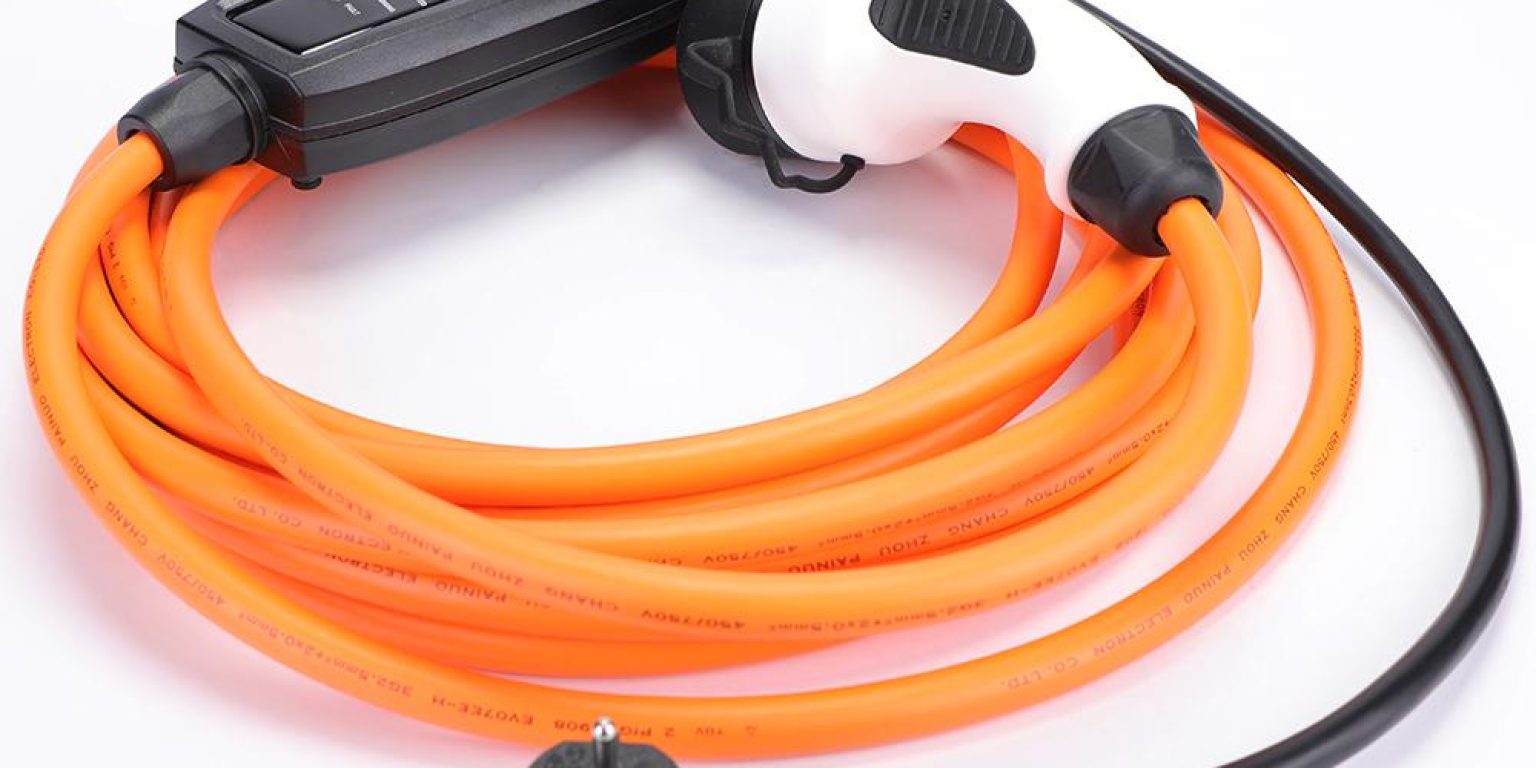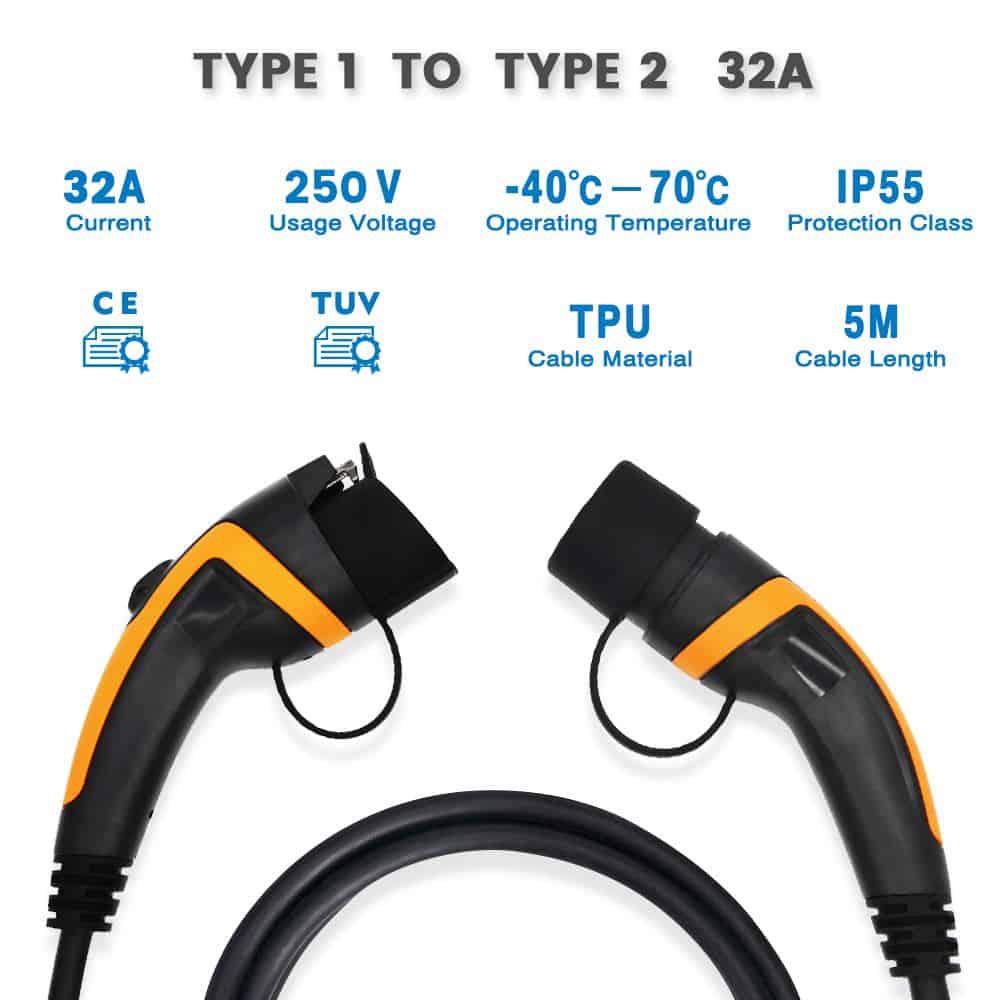An EV charging cable is, without a doubt, the most essential constituent an electric vehicle. Usually, every new electric car comes with two distinct charging cables. One of these cables is specifically for a three-pin-socket and the other one comes in handy in public charging points. If somehow, your vehicle’s manufacturer does not provide both cables, you might want to consider buying the missing one yourself. Unfortunately, most people lack meaningful knowledge on this type of cable.
Nobody can deny the fact that electric vehicles are great. Still, moving from traditional fossil fuel-powered vehicles to electric powered ones is a huge leap. You must first understand that there are several EV charging cable types to pick the most suitable option for your electric car. Also, you have to keep in mind that you don’t just use any cable in various electric vehicle charging points. These three key factors you ought to consider when shopping for a charging cable for your vehicle. These factors include;
- The cable connector types
- The cable’s power and phase ratings
- The length of the cable
More importantly, you need to check any cable for EN 50620:201 certification label. This label is clear proof that the cable meets the necessary quality and safety standards. In this post, we will take a look at everything you must know to pick the best EV charging cable for your vehicle. Are you thinking of purchasing your first electric car or searching for a spare charging cable? I guarantee that you are in the best place to learn everything you ought to know.
1. What size cable is ideal for EV charging?
There is no one size that fits all when it comes to charging cables. The ideal size depends on your specific electrical installation and the capacity of your vehicle’s onboard charger. The voltage needs of most electric vehicles fall within the bracket of 32 amperes with a 240-volt charger capacity.
Assuming that your vehicle’s needs fall within this range, it would be best to settle for a 32-ampere cable. Generally, a 4 mm EV charging cable can do the job if you are dealing with 32 amperes on a short run of around 10 meters. However, a 6 mm cable is suitable for long runs because it covers for the voltage drop over a long distance.
It is also important to consider type of charger you work with when choosing an ideal cable size. Generally, EV charging cable types are classified into two distinct categories depending on the charger’s operating voltage needs. Here is an outline of each of these categories;
ü Level 1 AC charging
This type of charging allows you to plug into a normal wall charging port and operate at 120 volts. It is popular in most parts of North America. Electric vehicle experts say that it can add three to eight kilometers travel range each hour that the vehicle is plugged in.
ü Level 2 AC charging
This charging cable typically operates at a rate of approximately 7 to 19 kilowatts depending on the charging port and car type. You should consider investing in it if your daily mileage exceeds sixty kilometers. It operates at 240 volts, which is twice the rate of a level 1 charging panel. Every hour of charging can add 16 to 97 kilometers depending on the type of car and charging station.
There is an alternative level 2 portable cable that can work in both 120 and 240 volts systems. This type of cable is gaining popularity in modern electric vehicles. Most EV charging cable manufacturers produce this dual-functional cable owing to its rising popularity. Essentially, it comes with different ‘plaits’ that facilitates its use in different types of outlets.
2. Why are EV charging cables so expensive?
If you own an electric car you may have realized that an EV charging cable is pretty expensive. There are several types of charging cables to choose from. Even though their prices vary, it is safe to say that they are costly especially if you compare their prices with electrical wire prices. Most people often wonder why they have to spend more when purchasing charging cables.
Well, most manufacturers use copper in the manufacturing process. It is accurate to assume that the cables are expensive as a result of the rising prices of copper. However, that is not the only reason all charging cable’s including EV charging cable type 1 are so expensive. Several factors contribute to the costliness of these cable types. Here are some universal factors that increase the cost of charging cables;
ü Cable production elements
The production and testing practices are extremely complex when dealing with a vehicle charging cable. Any manufacturer interested in producing the best EV charging cable has to spend a lot in the production and testing stages. A dependable manufacturer incurs the cost of shaping various metallic resources required during the cable testing phase.
Also, manufacturers have to spend more money in the marketing process because electronic vehicles are a relatively new invention. The level 2 portable charging cable, currently the most popular cable type, is the most expensive option. This is primarily because it comprises several additional features that are pretty costly to incorporate.
ü There are several specific design elements in the manufacturing process
There are several EV charging cable types with distinct construction designs. Unlike electrical cables, there are several design specifics that charging cable manufacturers have to implement. Apart from the design work, manufacturers need to ensure that the cables meet different electrical amps standards. In essence, it takes a lot of resources to produce the perfect charging cable.
ü Manufacturers have to spend more to guarantee safety
The engineering that it takes to design and produce an EV charging cable that meets all safety standards is pretty pricy. There are several aspects that we need to consider during the manufacturing process. Some of the most important aspects that contribute to the cable’s overall safety include;
- The conductive material- we use copper because it guarantees maximum conductivity even though copper is pretty expensive
- Monitoring box- it allows you to monitor and measure the amount of current flowing through the cable. We also incorporate a smart cable design to protect your home from catching fire due to the high voltage running through the cable
3. Is an EV charging cable universal?
Are you considering the idea of ditching your fossil-fueled vehicle for an electric one? Electric vehicles are gaining popularity but they come with a lot of challenges because they are profoundly different from conventional vehicles. If you own one, you have noticed that it has no engine under its bonnet. Moreover, the way to fill it up is absolutely different. When you own an electric vehicle you need to think about EV charging cable specification and its suitability to your vehicle model. Every electric vehicle owner struggles with the question of universality of charging cables at one point or another.
Most people struggle to understand EV charging cables because they are not as simple as they imagine them to be. An EV charging cable is not identical to the electrical cables that we are used to. Instead, it comprises of three distinct parts. These parts include;
- A connector that plugs into your car
- A length of cable
- A plug which links to the power source
Currently, there are several electric vehicles in the market. The most popular brands that manufacture electric vehicles include Audi, BMW, Tesla, Nissan, and Hyundai, to name a few. These brands produce different car models that use different types of connectors. Consequently, it is safe to say that EV charging cables are not universal. For example, if your vehicles make and model is Audi E-tron you need a cable with either a type 2 connector or CCS. Those who drive a Renault Zoe are limited to an EV charging cable type 2 only. That being said most new electronic vehicle models are compatible with type 2 cables. Here is an outline of connector types for different electronic cables;
4. How to protect EV charging cable from theft
Has somebody ever told you that nobody can steal your charging cable? The idea that charging cables are theft-proof is a myth my dear friends. Most EV charging cable manufacturers recognize the risk of theft of this extremely expensive cable. Consequently, they have built in a locking mechanism that kicks in every time you plug in the charger to the vehicle. Regrettably, such locking mechanisms are not always foolproof. In fact, recent studies suggest that cable thieves use little more than visceral force to detach the cable. Considering that the cables are pretty costly, how do you protect them from potential theft?
First, you need to understand that there are several reasons that may push someone to steal your EV charging cable. For some people, it is an excellent way to make some quick cash. There is a huge secondary market for this type of cable, especially because a new one is so expensive. It would be wise to secure your cable as much as you can to avoid unnecessary expenses in case of theft. Well, there are several ways of protecting your cable. Here are a few that are worth considering;
ü Use a Padlock
Padlocks have been around for several decades. More importantly, they work and are very cheap. Most electric vehicles have a loop which allows you to secure your cable using a padlock. If your car does not have a dedicated loop you can coil the cable through one of the wheel spokes. Once you do that you can lock the padlock over the cable with the spoke acting as a loop.
ü Use your car boot as a locking mechanism
This technique works best if you are dealing with the longest EV charging cable in the market. All it takes to secure your cable is to trap it through the boot’s locking mechanism. Is your cable too short? You should consider investing in a heavy-duty EV charging cable extension from leading manufacturers such as ZW cables.
ü Park your car on the cable
This is a high-risk option because the weight of the car may damage the cable. However, if you find yourself no other option, parking on the cable is an effective way of securing it. You have to position the cable on the ground and roll the car over it. You must leave enough slack to minimize tension that may damage the cable.
5. How to choose the right type of EV charging cable
There is no room for error when choosing an EV charging cable considering that it is extremely expensive. You must choose the right type for your vehicle at your first attempt. Generally speaking, there are three key aspects you ought to consider when selecting an ideal cable. The key aspects include the cable connector types, power/phase ratings, and cable length. Let us take an in-depth look at each of them.
ü EV charging cable connectors
There are several common charging cable connector types. You can easily identify the one that suits your car just by glancing at it. Most electric car models also come with a handbook which helps you to identify the connector that suits your vehicle. The two most common connector variants are type 1, type 2, CCS, and CHAdeMO. Type 1 and 2 variants are attuned to fast chargers. CCS and CHAdeMO are meant for rapid chargers. Old electric vehicle models mostly use an EV charging cable type 1. New electric vehicle models use an EV charging cable type 2. Nevertheless, you need a wall box operating at around 7 to 22 kilowatts to use this cable type.
ü Power/Phase Ratings
It is advisable to choose a charging cable that’s rated to transmit enough voltage to charge your vehicle’s battery within the shortest time. Usually, charging cables come in 16 amperes and 32-ampere variants. Still, it is advisable to invest in a 32 ampere even if your vehicle’s onboard battery is rated for 16 amperes. Generally speaking, a 32 amps cable is denser than a 16 amps one. This will help you differentiate the two cable types.
6. Summary
You need an EV charging cable to plug into most public charging points. This post helps you to make the most appropriate choice for your vehicle. The points below summarize all the information above;
- You need to pick a charging cable whose connector is equivalent to the one on your vehicle
- Charging cables diverge in length, current rating and can transmit single or three-phase power
Last Updated on August 28, 2021 by Richard




